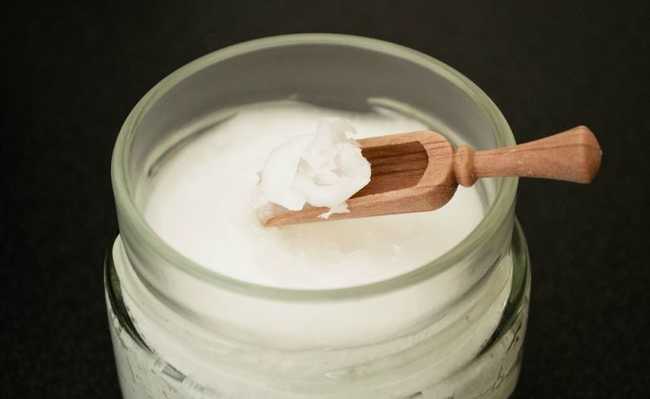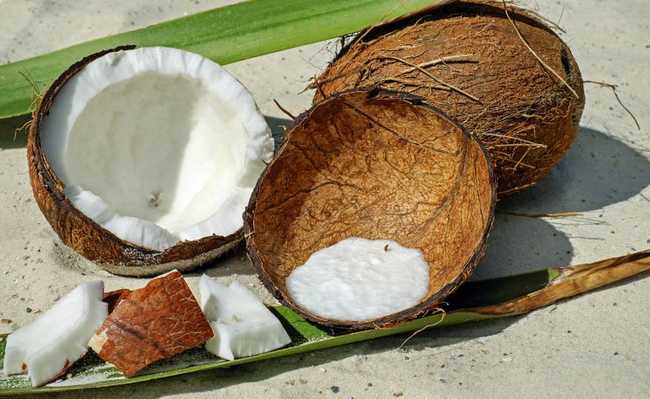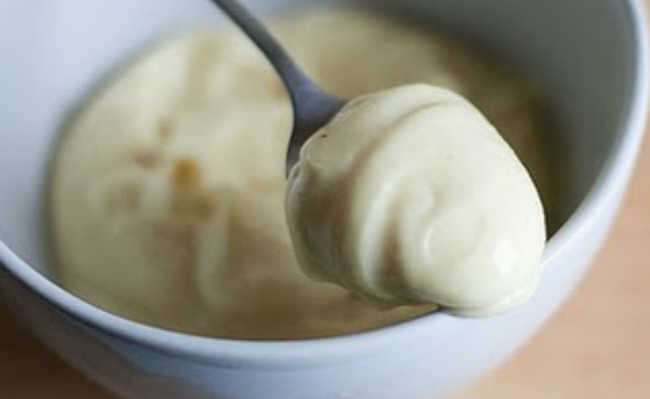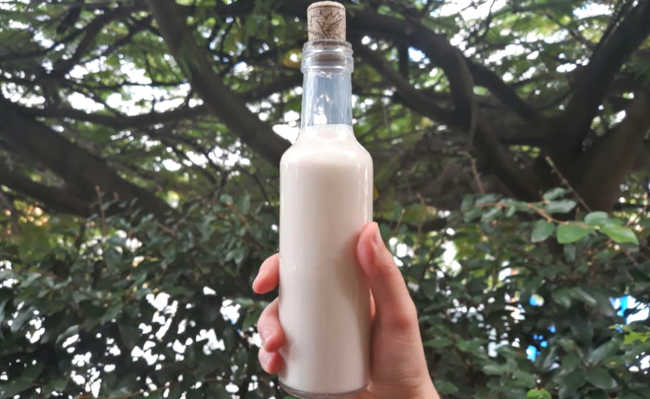Coconut oil: know its benefits and learn how to use it
Coconut oil is good for the skin and hair, but its intake is controversial. Understand

DanaTentis image by Pixabay
Coconut oil, coconut oil or coconut butter is a vegetable oil derived from the fruit. Nucifera coconuts, which is the most traditional and most commonly found coconut, sold as green coconut on beaches and dried or in other supermarket versions. It can be extracted through pressing, solvents and at-home processes. It is possible to use coconut oil to moisturize hair, skin and also in cooking, although its use in food is controversial.
To better understand how the vegetable oil extraction process works, read the article: "Learn about vegetable oil extraction techniques". If you want to learn how to make coconut oil at home, check out the article: "How to make homemade coconut oil in an easy way?".

Couleur image by Pixabay
Other oils extracted from different types of coconut are available on the market, such as babassu coconut oil (photo below), but these products are popularly called "baassu oil" or "baassu coconut oil", and not "coconut oil". ", although they are also extracted from a species of coconut. To learn more about babassu coconut oil, check out the article: "Babassu coconut oil: what it is for".

Marcelo Cavallari, Hermaphrodite Infructescence, CC BY-SA 4.0
Although some people confuse coconut oil with coconut milk and even with coconut pulp, these formats are completely different both in terms of appearance, density and flavor, as well as in their nutritional and functional properties.
When taking advantage of the properties of coconut oil, it is necessary to pay attention to its different formats. Virgin coconut oil has different beneficial properties than dry coconut oil or copra - the most commonly found on the market.
On the other hand, it is necessary to avoid hydrogenated coconut oil and give preference to cold-pressed organic extra virgin oils. In addition to being healthier, these versions retain their original properties and have a more pleasant coconut flavor. They can be found in either the copra or virgin coconut versions.
It is also necessary to avoid oils extracted by solvents, as the use of hexane can be socially and environmentally harmful. Understand more about this topic in the article: "Vegetable oils: know the benefits and cosmetic properties".
Coconut oil (Nucifera coconuts) is famous for bringing benefits to health and beauty through feeding and direct application to hair, skin, teeth and mucous membranes. The cleaning products industry also uses it to make soaps, which are even reputed to be more sustainable than other types of cleaning agents with a detergent action. To learn more about this topic, check out the article: "Is coconut soap sustainable?".
Health experts have recommended the daily intake of coconut oil for treatment and disease prevention. However, this vegetable oil ends up being controversial, because while a portion of doctors and nutritionists are in favor of its use, another claims that consumption (via digestion) is not yet proven safe due to the amount of saturated fat. On the other hand, there are some studies that prove that its consumption by humans can bring benefits for the treatment and prevention of diseases.
Coconut Oil Benefits
Prevents and treats hair damage
A study published by Society Cosmetic Chemists showed that coconut oil helps prevent damage to hair caused by combing and treats damaged strands chemically (whitening) and thermally (hot shower water, heat from flat irons, dryers, etc.). That's because, according to the study, coconut oil helps prevent the loss of protein and water from the hair, in addition to serving as a lubricating film.
- Coconut oil on hair: benefits and how to use
Improves fat levels
A study of Filipino women and published by US National Library of Medicine suggests that coconut oil consumption improves fat levels in premenopausal women. The same study cites analyzes carried out on animals, which show that the consumption of coconut oil reduces total cholesterol, which contributes to reducing the risk of cardiovascular disease - being a great substitute for butters and hydrogenated vegetable fats.
The same study presents information that data from the 2003 Philippine National Nutrition Survey show a relatively low incidence of hypercholesterolemia (high cholesterol), hypertension, stroke and angina (weakening of the heart muscles) in the Bicol region. , where diets have high levels of coconut consumption compared to other regions.
Prevents Alzheimer's Disease
Although coconut oil has historically been recognized as a source that contains high levels of saturated fat, a study published by the platform PubMed suggests that the benefits of coconut should be reconsidered.
This is because, unlike saturated animal fats, coconut oil has medium-chain fatty acids (such as lauric acid, myristic acid and caprylic acid), which are the only ones that can be absorbed and metabolized by the liver, being converted to ketones - important alternative energy sources for the brain that can be beneficial for people who are developing or already have memory impairments, such as Alzheimer's disease.
improves diabetes
Oxidative stress is one of the characteristics of diabetes mellitus. According to a study published by the platform PubMed, the antioxidant properties (among other functions) of virgin coconut oil may have a beneficial effect in ameliorating the disease. According to the study, this is because coconut oil significantly reduces the level of fasting blood glucose and improves glucose tolerance.
Treats gingivitis and plaque formation on teeth
Another study published by the platform PubMed concluded that coconut oil is a great adjuvant in decreasing plaque formation and plaque-induced gingivitis - making it an ally in daily oral hygiene.
Treats xerosis (dry, flaky and rough skins)
Dry, flaky, rough and itchy skin is associated with poor functionality in the skin's natural protective barrier - a condition that can even be caused by hot shower water. According to the study published by ScienceDirect, coconut oil is a great moisturizer for these cases, has antiseptic effects and is more effective than mineral oils.
How to use
in food
Coconut oil is a great culinary ingredient. Cakes, sweets, creams, sauces, mousses, ice cream and even homemade chocolates have a light, healthy and creamy touch when the recipe contains coconut oil. The latter because - when the ambient temperature is not too high - coconut oil has a pasty appearance.
cosmetics
In addition to being a safe body moisturizer (different from conventional cosmetic products - find out more in the article: "Substances to avoid in cosmetics and hygiene products") and which can be mixed with essential oils and bring benefits to the health of the skin, the oil coconut is a great make-up remover and can have the function of exfoliating the skin - if mixed with coffee grounds. In times of very low or high temperatures, coconut oil is also a great lip moisturizer. When mixed with bactericidal essential oils (such as tea tree essential oil) and sodium bicarbonate, coconut oil has the function of deodorizing and at the same time moisturizing the armpits.
Oral hygiene
As mentioned above, coconut oil is an effective adjunct in the treatment of dental plaque and gingivitis caused by plaque. So how about adding it to your daily oral hygiene and still enjoy the smooth coconut flavor?
Controversy
Although the studies mentioned have concluded that coconut oil has benefits for the treatment and prevention of the diseases mentioned above, the Brazilian Association of Nutrology (Abran) considers that the analyzes carried out so far are controversial and inconclusive; and recommends that coconut oil should not be prescribed for the prevention or treatment of disease.Abran further states that:
- When coconut oil is compared to vegetable oils less rich in saturated fatty acid, it increases total cholesterol.
- Studies that conclude that coconut oil has antibacterial, antifungal, antiviral and immunomodulating activities are predominantly experimental, notably in vitro, with no clinical studies demonstrating these effects.
- To date, there is no clinical evidence that coconut oil can protect or alleviate neurodegenerative diseases such as Alzheimer's disease.
- A very small number of studies, with controversial results, have reported the effects of coconut oil on body weight in humans.
Did you like the article about coconut oil? So you might also want to take a look at the article: "Grape seed oil: benefits and how to use it".
But remember: when you run out of coconut oil - if you don't reuse the glass jar - dispose of the container correctly. See which collection points are closest to your home.










